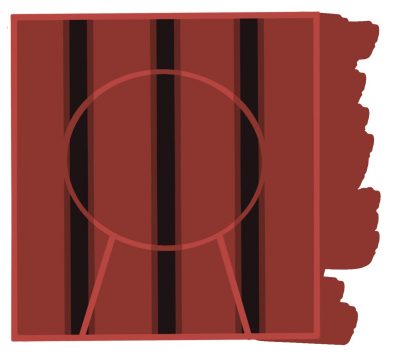The Supreme Court announced Monday it was reopening the Boston Marathon bombing case and potentially reinstating the death sentence of terrorist Dzhokhar Tsarnaev. It’s unclear whether President Joe Biden will maintain his stance on abolishing the federal death penalty or if he will move forward with setting an execution date for Tsarnaev.
The Boston Marathon bombing and any decisions that are made involving justice for the three people who were killed and more than 260 who were injured are especially impactful to the Boston community and those who have deeply felt the aftermath. But it was and continues to be a highly visible and international story of perseverance, an example of solidarity and the strength of our nation in overcoming terrorism.
Despite Tsarnaev’s involvement in the heinous attack, Biden needs to double down on his promise to end death penalties. This is one of his first tests as our newly inaugurated president and is a chance to set a precedent for future cases.
If Biden doesn’t choose the death penalty for Tsarnaev, some people will perceive him as being too soft on crime and too soft on Tsarnaev. But as a nation, we should no longer endorse a life-ending punishment that is historically rooted in racial prejudice and financial incentive.
The death penalty is inherently immoral. Participating in this sort of punishment — where we deal with criminals by simply sentencing them to death — effectively regresses to a cruel and outdated era of society that we’ve progressed beyond.
We can’t fight evil with evil, or murder with murder. Rather than relying on capital punishment, we must offer people the chance to rehabilitate.

However, the problem arises when we discuss alternatives to the death penalty. The current prison system is one that doesn’t function with the intent to rehabilitate individuals who are incarcerated. We have reduced and dehumanized prisoners to the point where they’re defined by their wrongdoings — no matter how small or petty — and milked for unethical labor.
In other words, our prison system is built on exploitation and punishment.
Even if it were built on rehabilitation, many would say that some people, such as Tsarnaev, are beyond saving — people like him fully deserve the death penalty.
Yet if punishment is how we define justice, our broken prison system could indeed carry out this purpose without execution. Tsarnaev is now 27 years old and facing a lifetime in prison, a future so miserable and isolating that it is comparable to the death sentence — would you rather spend 60 years in a jail cell or escape the torture and be killed?
That time in prison may force Tsarnaev and others like him to come to terms with what they’ve done. It may not make them feel remorse or guilt, and it certainly doesn’t guarantee reformation, but it could be a more fitting and suitable punishment.
Most importantly, it’s not acceptable to justify capital punishment by saying the person deserved it, even if the criminals in questions are the worst of the worst: serial killers, serial rapists, terrorists.
We must strive for consistency and absolutes in the law because there is no room for nuance in a system that abhors it.
As is with the nature of human fallacy, the death penalty has regularly victimized innocent people. There is an estimated wrongful conviction rate of 4.1% in death sentences. Those who aren’t lucky enough to be exonerated before their execution date suffer a permanent, undoable fate.
Because the death penalty is such a severe punishment, the risk of innacurracy poses too great a threat. It’s unforgivable to subject people who may be innocent for a crime to death row.
Deciding who should live and die is also far too much power to entrust in a government and judicial system that is already riddled with biases, inequalities and corruption. Former President Donald Trump’s administration has shown the extent to which this power can be thoroughly abused — with 13 scheduled executions in just six months toward the end of his term.
Even in the death-row exonerations, we can see a pattern behind prisoners who were wrongly convicted.
Of 185 exonerated death-row prisoners since 1973, more than half were Black and almost two-thirds were people of color, according to existing data from the Death Penalty Information Center.
Any discussion of capital punishment has to include a discussion of how sentences are handed down and the racial disparities in the U.S. criminal justice system. Specifically, we must examine how Black and Latino Americans are more likely to be arrested, convicted and issued longer sentences.
Many factors play into this: policing, unjust policies, cash bail, the school-to-prison pipeline, parole decisions, prosecutor bias and financial incentive of prisons to mass incarcerate. Capital punishment magnifies and builds on the inequities of every previous step.
It’s not a sustainable solution either. Seeking death sentences is a huge drain of our financial resources — hundreds of millions of dollars and up to three times the cost of non-capital cases go toward the death penalty.
Even families of homicide victims oppose the death penalty, citing it as a false promise and a waste of taxpayers’ money that should be reallocated toward victim services.
In the end, there is no winning against a system that perpetuates inequalities and a cycle of crime and incarceration. It’s not just this one case of the Boston Marathon bomber that we need to examine.
At the very core of every death penalty decision lies the justice system and privatized prison system. We must heighten the barrier of entry for incarceration, dismantle private prisons, address systemic racial biases and abolish the capital punishment.




